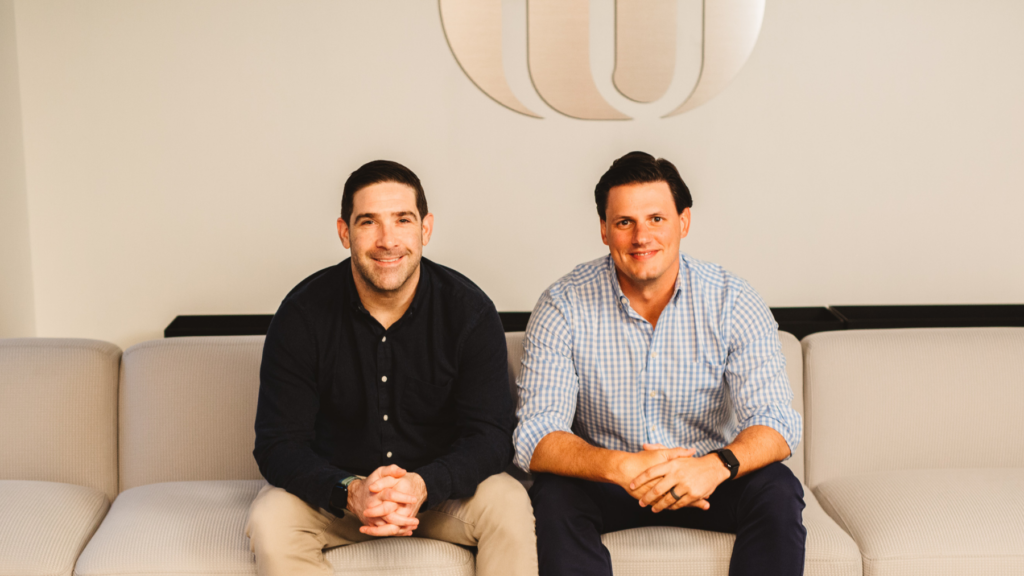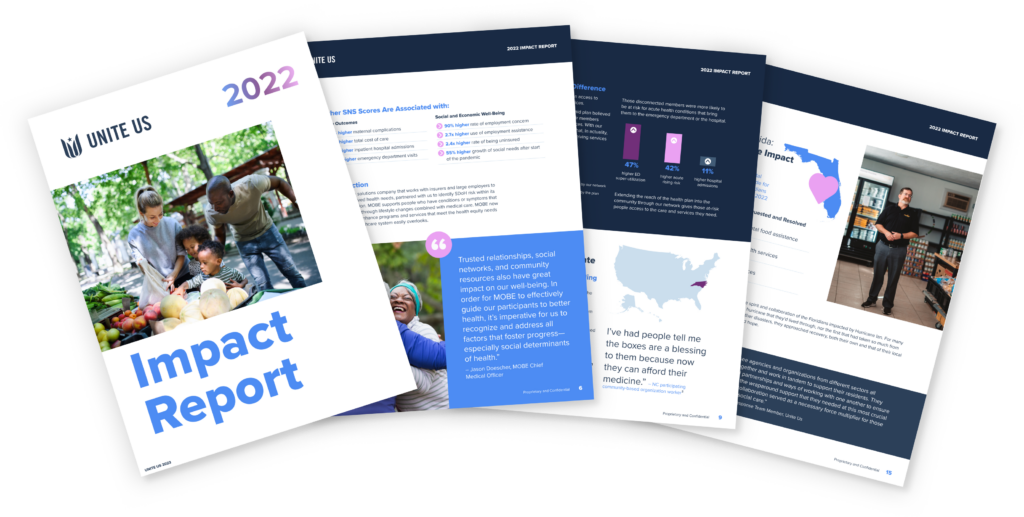
Community-Driven Care: How One State Prioritizes People’s Health
At Unite Us, we believe communities are the future of health. In the first of Unite Us’ new community health webinar series, entitled “Health Lives Here,” Unite Us Senior Community Engagement Manager Stephanie Harris spoke with two partners who are using Unite Us’ end-to-end social care solutions to improve health in their communities.
Dr. Chelsea Arnold, Initiative Coordinator at First 1000 Days Suncoast, and Rachelle Christy Thompson of Feeding Tampa Bay discussed how Unite Us allows them to remove barriers to care and make their operations more efficient and effective.
Providing food for clients, explained Thompson, is “low hanging fruit” in the social-service world. Even when people have several unmet social needs, they’re often more willing to accept food help than they are other types of assistance.
“What happens is that a lot more people in the community end up in our care who need a lot more than just food. We knew that before the pandemic, and during the pandemic, that became super apparent,” Thompson said. “But we’re not set up to necessarily be doing service connecting within the community. That’s where Unite Us was really helpful. It brought authority for us to help those we’re trying to serve and do those connecting pieces.”
Using Unite Us Network Hub Support, Thompson coordinates care for clients of Feeding Tampa Bay, connecting them to other partners in the network, strengthening the community-wide infrastructure in her area, and ultimately providing better, more comprehensive care to the people she serves.
Arnold was responsible for choosing a social determinants of health platform for First 1000 Days Suncoast, and ultimately selected Unite Us because it best met the specific needs of her initiative.
“When we were looking for a platform, we really needed something with very robust data, because we want to make sure that we are addressing all of those barriers to service,” Arnold said. “Unite Us is one of our biggest tools for identifying some of those race- and place-based inequities within our community.”
The Unite Us end-to-end social care solutions offer a simplified process for connecting people to the care they need. Both Arnold and Thompson encourage other organizations considering the Unite Us platform to embrace technology and its ability to make social care work more efficiently.
“The case managers in our women and children’s division and our emergency department are using the Unite Us Platform, and before the Unite Us Platform, they would designate two to three hours at the end of the day to stand at the fax machine, sending off some of these referrals. Unite Us had made them way more efficient,” Arnold said.
Thompson points to a major benefit of joining the Unite Us network for the clients her organization serves: They experience much less “social service navigating fatigue,” which means they’re spending far less time and energy talking to multiple organizations to try to get their social needs met.
“What we heard as feedback was that it was so encouraging for them to just call one place and tell their story one time, and have a caring person listen on the other end, and be that point to connect them,” Thompson said. “We could be this hub that referred and connected, and it would have been really hard to do that without an organized network that had those tools available.”
Watch the full webinar here and stay tuned for our second Health Lives Here webinar installment coming in August!
About Unite Us
Unite Us is the nation’s leading software company bringing sectors together to improve the health and well-being of communities. We drive the collaboration to predict, deliver, and pay for services that impact whole-person health. Through Unite Us’ national network and software, community-based organizations, government agencies, and healthcare organizations are all connected to better collaborate to meet the needs of the individuals in their communities.



